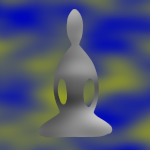Dear Friends,
The ninth talk in Andrea Fella’s Daily Life Practice Retreat from April 2016 looks at what we do in this practice, and why we’re doing it.
What we’re doing is exploring wise mindfulness – knowing what is happening in the present moment while it is happening. We know that we know; we are aware that we are aware.
Turning and knowing what’s happening in the present moment can be extremely powerful for us as it helps us learn about our hearts and minds. From that, it can free us from the ways we get caught and struggle in our lives. So this “ordinary” quality of knowing that we know needs to be cultivated with a particular perspective – to understand the quality of our minds, why we struggle.
Andrea F gave an example that our attention to know anger (or whatever is arising) in the present moment as a phenomenon – so we understand “this is anger – this is what anger feels like” – not “why am I angry, who am I angry at, how can I fix this problem?”
What is this experience of reactivity? What does it feel like in the body and in the mind?
We’ll often notice that these reactive states are not pleasant, and our default behavior often is to try to get rid of that state, by lashing out or removing ourselves from the situation.
We can also notice beautiful and wholesome states of mind, like compassion, joy, love, generosity. What’s the experience of these states?
With this type of curiosity, we begin to get a visceral understanding that certain reactive states of mind are, in the moment, not productive of well-being. Likewise there’s feedback for other states (like compassion, generosity, etc.) of experiencing well-being. This simple tool of turning towards our experience, gives our system an education about what leads us to struggle, and what leads us towards less struggle and more well-being.
Even thoughts about the past or future are happening in the present moment. A thought of the past is an experience, a recollection, a memory, that’s arising in the present moment. A thought may arise about the past, but the mind is reconstructing reactivity in this moment – the suffering is happening now. Thoughts about the future are constructions of possibility in our mind, also happening in the present moment.
The Buddha once shared a poem (MN 131):
Let not a person revive the past
Or on the future build his hopes;
For the past has been left behind
And the future has not been reached.
Instead with insight let them see
Each presently arisen state;
Let them know that and be sure of it,
Invincibly, unshakably.
We can be aware – “thinking about the past is happening” – “thinking about the future is happening”. Then we can begin to recognize whether it’s useful to be thinking about this or not.
This mindfulness does not make us a passive blob. Mindfulness is about connecting to what’s happening in the present moment, and this is helpful because the present moment is the only place anything happens. As we get familiar with our patterns of reactivity, we can start to recognize when they begin to arise and then have the ability to choose, in this moment, to act differently. Andrea F gives the example that we might see the urge to lash out at someone, but catch that before we speak, and then we might choose to act differently.
This talk reminds me of this quote (often attributed to Viktor Frankl):
Between stimulus and response there is a space. In that space is our power to choose our response. In our response lies our growth and our freedom.
Tara Brach recently wrote about something similar: Stand Up for What You Love.
A misconception about pausing in the midst of reactivity says that if we take time in these situations to “be with what is” and feel things deep down, a self-absorbed complacency will take over and rob us of the energy to act. I’m convinced that it’s not that way at all. Rather, if we really courageously open to what’s inside us, we get to the caring that makes action the most natural thing in the world. Even more importantly, the actions we take will be planting seeds for true transformation rather than reinforcing old patterns of division and conflict.
(The article includes a link to a recorded meditation from Tara: Meditation: Awakening Compassion.)
For me, one of my patterns of reactivity was (is) to turn away from being vulnerable. And I’ve also paid attention to the wholesomeness that comes from connecting with others, which requires vulnerability. Through this practice of mindfulness, I’ve noticed more often now, I can make that choice to really be here, to be willing to face my vulnerability, and to connect in deep meaningful ways. And that’s beautiful.
What’s true for you? Why do you practice?
With best wishes,
Andrea
